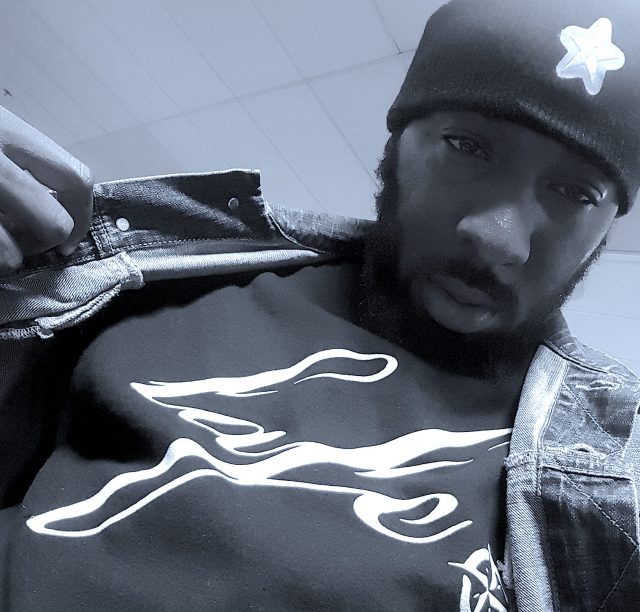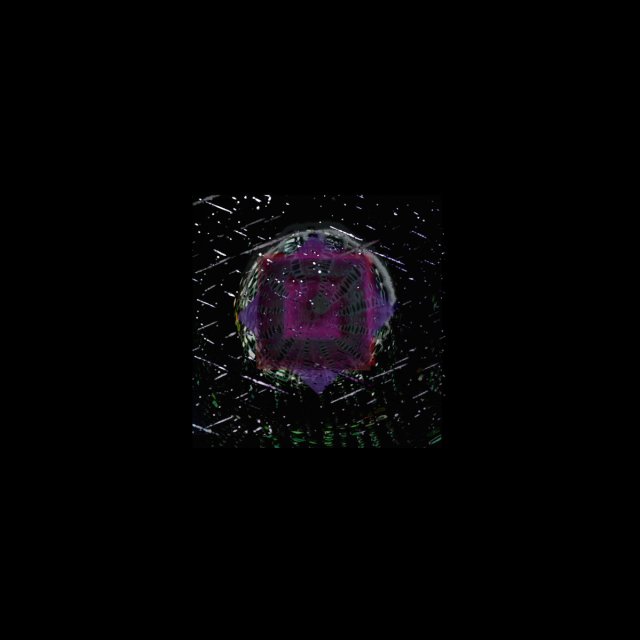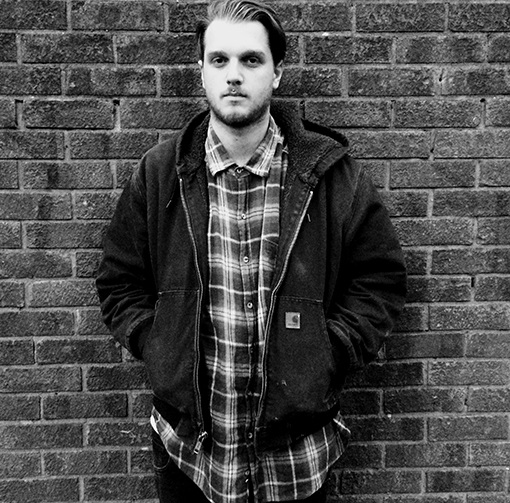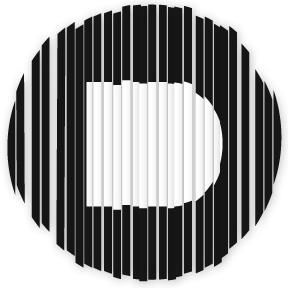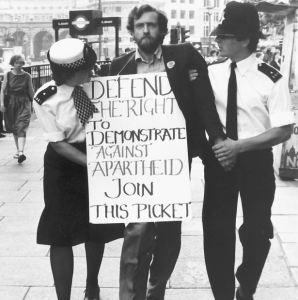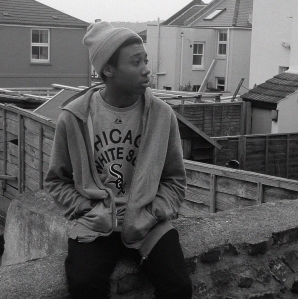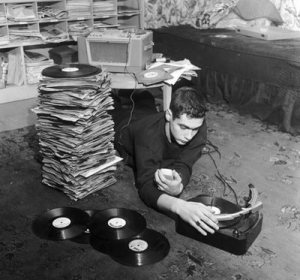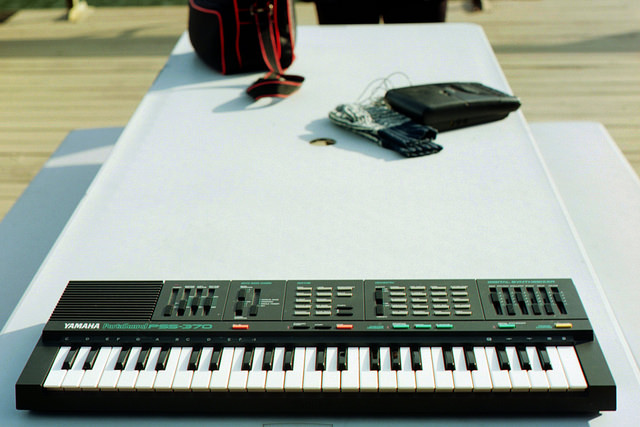
I recently caught up with Orchid Mantis, a producer whose dreamily melodic plunderphonic sounds have been capturing my imagination for some time now. He was kind enough to create a mix for our aural pleasure – a delectable, dreamy ambient construction that’s now on heavy repeat. Enjoy it, and check out our interview after the jump.
Tell us a bit about your background and influences. I noticed on your bandcamp you talk about Entroducing…what about that album was so inspiring to you?
I first started writing songs on guitar, mostly just trying to sound like Nick Drake & Elliott Smith. I was always more interested in more hushed & introspective sounds, so when I got into ambient & hypnagogic pop, stuff that was incorporating electronics but obstructing them in lo-fi, foggy production, that really played a huge role in shaping my songs. At the same time, my whole perspective on how I could approach music was being broadened by albums like Endtroducing. Along with simply loving the sound of that album, I was inspired myself to try constructing songs around a sample being used as inspiration. Not having to start from scratch somehow made it a lot easier for me to find a voice & strengthen my songwriting.
I also read in an interview on Rare Candy that you’re influenced by summers in Sweden in your youth and filmmakers such as David Lynch…can you describe how these things inform your music?
I’ve always gravitated towards writing about nature, as well as taking inspiration from the natural sounds of places for the sort of organic, degraded tones I use. I guess this comes from my interest in trying to express a sense of place & environment in my music. Somehow many of my songs end up outside in wooded areas or generally in/outside friends houses after dark. When I’m writing about the woods, I’m drawn to childhood memories of Sweden because that’s when nature was grandest for me, spending all day wandering around middle-of-nowhere farmland until I could see the sun set & headed home. These are also very old memories; I write about the past in my music far more often than the present so it becomes clear that there’s significant warping – very romanticized pictures in my head that I’m trying to convey accurately. That’s what my interest in surrealism stems from, I like to emphasize elements & shape the tone of the lyrics & sound of my music in a way that isn’t intended as an accurate depiction of events, but rather, how the memories appear now looking back. Often they feel sort of like a dream, looking back on the logic of past lifestyles. David Lynch also seems interested in approaching reality through a warped lens, taking things we recognize & twisting them until they’re just off enough to feel foreign & uncanny. Discovering him & the entire surrealist movement in general was so important for me because it was indication that what I imagined wasn’t anything new, I had teachers & vast works to draw influence from.
Is there a strong experimental scene in Atlanta? I think for most of us from the outside the scene is almost totally associated with various styles of hip-hop and soul.
I really don’t feel equipped to answer this very well because I’ve only really started interacting with the Atlanta scene recently! However, I’ve definitely managed to find a great deal of live experimental music in Atlanta just by looking out for it. Venues like Eyedrum, Mammal Gallery, Wonderroot, etc. are all very open to & supportive of alternative approaches to music. I recently saw Ben Pioulard perform at Eyedrum, supported by a female singer-songwriter who sang intimate folk with just her voice, guitar, and a percussive rattle made of bones, as well as two different ambient groups, one of which finished off their set with a haunted-sounding rendition of Twinkle Twinkle Little Star, conjured through the demo function on their casio keyboard.
How did you first become interested in producing your own tracks?
It sorta started with loop pedals. I was in a band in high school & we never really got the “consistent practice” thing down, so I kept writing these songs & I would be too impatient to wait & finish the rest of the instrumentation with the band. I figured I’d just write them solo & do everything myself, so that led to discovering loopers. After I began making little sample collages in ableton, I decided to buy a midi controller & try to incorporate guitar as well somehow. I started recording with 4-tracks and aside from some upgrades in the process, its still pretty much what I’m doing.
You work a lot with audio collages, How do you put together these tracks, what is your process and what equipment do you use?
I draw from my own collection of field recordings as well as little bits of sound culled from all over youtube. I’ll arrange everything in ableton, just chopping up, looping, reversing little pieces. Additionally I’ll also run that through old tape recorders & pitch things around or warp the tape just to blur the edges & get closer to what I’m imagining.
What do you do to get your music out there? How did you first become associated with Track & Field records for example?
I’ve stuck pretty much exclusively with online promotion for Orchid Mantis, my strategy from the start has always just been telling as many people who are really into music as possible about my stuff. Just from that, with patience, cool things start to happen organically. That’s how I found my publicist Lanny at Chill Chill as well as Track & Field, just making lots of connections & reaching out to people who are into similar stuff.
Tell me about your mix.
I wanted to focus on my love for ambient/drone music and just make a sort of sampler of what’s influenced that aspect of my work with Orchid Mantis. A good deal of the songs remind me specifically of really early mornings; I was staying at friends houses often in my senior year of high school, and I’d always put on tracks like these as we made the drive to school every day. Additionally, there’s some newer stuff I’ve only found recently as well as an exceptional band I know from Atlanta.
I’ve been recording on & off, always writing & conceptualizing. I’m starting to amass a pretty large collection of unreleased tracks, right now the issue is figuring out what I want to do with them. There will be something coming soon for sure.
What’s floating your boat right now musically?
I’m spending a lot of time listening through the insane amount of music Leyland Kirby’s released & picking out the stuff that’s most compelling to me. The music I’m playing is generally pretty piano-heavy lately, I’m not sure why.
Thanks to Orchid Mantis for taking the time ❤
You can hear more from him, along with a whole host of great underground producers over on our Soundcloud.

